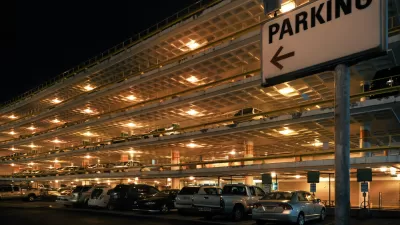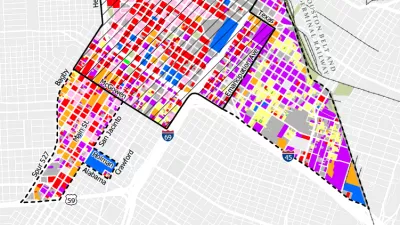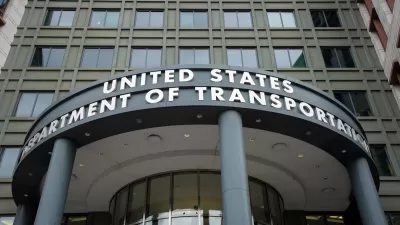Put another way, Shoup's case against parking requirements is that they make life harder for the poor.
Donald Shoup takes to the Opinion pages of The Washington Post to explain how parking requirements hurt people living in poverty, or, more specifically: "Parking requirements also undermine public transit and make life harder for people who are too poor to own a car."
According to Shoup, who references his work in the High Cost of Free Parking in the article, goes into more detail about the negative effects of parking requirements. Though the arguments pioneered by Shoup in the past have become more commonplace in planning circles, it's helpful to see how Shoup presents his case to the broader public. Also, Shoup concludes the op-ed with an appeal directly to planners:
City planners cannot do much to counter the inequality of wealth in the United States, but they can help to reform parking requirements that place heavy burdens on minorities and the poor.
FULL STORY: How parking requirements hurt the poor

Alabama: Trump Terminates Settlements for Black Communities Harmed By Raw Sewage
Trump deemed the landmark civil rights agreement “illegal DEI and environmental justice policy.”

Planetizen Federal Action Tracker
A weekly monitor of how Trump’s orders and actions are impacting planners and planning in America.

The 120 Year Old Tiny Home Villages That Sheltered San Francisco’s Earthquake Refugees
More than a century ago, San Francisco mobilized to house thousands of residents displaced by the 1906 earthquake. Could their strategy offer a model for the present?

In Both Crashes and Crime, Public Transportation is Far Safer than Driving
Contrary to popular assumptions, public transportation has far lower crash and crime rates than automobile travel. For safer communities, improve and encourage transit travel.

Report: Zoning Reforms Should Complement Nashville’s Ambitious Transit Plan
Without reform, restrictive zoning codes will limit the impact of the city’s planned transit expansion and could exclude some of the residents who depend on transit the most.

Judge Orders Release of Frozen IRA, IIJA Funding
The decision is a victory for environmental groups who charged that freezing funds for critical infrastructure and disaster response programs caused “real and irreparable harm” to communities.
Urban Design for Planners 1: Software Tools
This six-course series explores essential urban design concepts using open source software and equips planners with the tools they need to participate fully in the urban design process.
Planning for Universal Design
Learn the tools for implementing Universal Design in planning regulations.
Clanton & Associates, Inc.
Jessamine County Fiscal Court
Institute for Housing and Urban Development Studies (IHS)
City of Grandview
Harvard GSD Executive Education
Toledo-Lucas County Plan Commissions
Salt Lake City
NYU Wagner Graduate School of Public Service





























